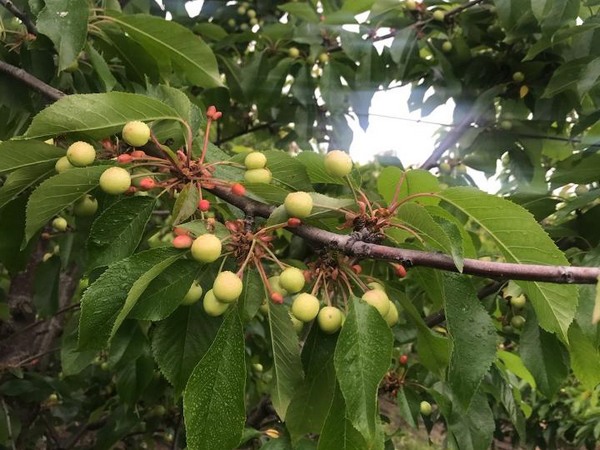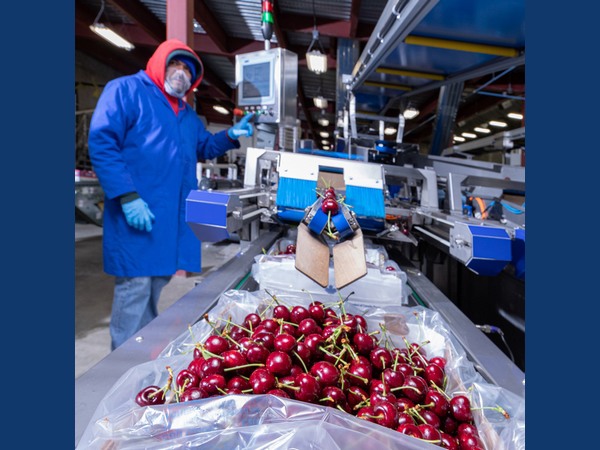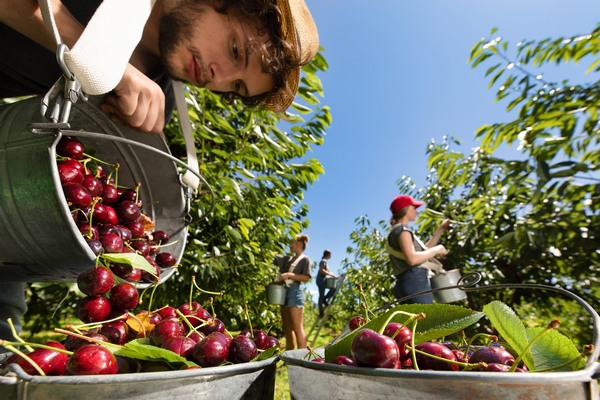In just a few weeks, California will kick off North America’s cherry harvest. “We expect to start picking the last week of April and volume will continue to increase until it hits a peak around May 8,” says Kyle Persky with Rivermaid Trading Company. “The peak season will continue until the first week of June.” The state is expecting a smaller crop this year. “The industry estimate is for the crop to be just under 7 million boxes,” Persky mentioned. “The trees are taking a break from what could have been a huge crop last year, but rain got in the way.”
 Royal Hazel cherry variety. Source: Rivermaid.
Royal Hazel cherry variety. Source: Rivermaid.
Laborers travel US west coast
Although the crop may be smaller this year, workers are still needed to pick the fruit. What will the impact of the coronavirus and California’s ‘shelter in place’ be on the availability of labor? Several sources confirmed labor is not going to be an issue. “We have several hundreds of seasonal workers every year and many of them travel the US west coast to work,” one source said. Some crews have been pruning orchards up in Washington and are traveling to California to pick cherries. Another source mentioned that “California citrus is winding down and pickers will move into cherries, which is a much higher pay.” Many people who work California’s cherry orchards and sheds return every year and cherry growers don’t expect that to be much different this year. “On top of this, many people in the hospitality and foodservice industries are out of jobs currently, so we don’t foresee labor being an issue.”
Foreign labor crucial for BC
British Columbia on the other hand largely depends on foreign labor for its cherry harvest. There is not enough local labor available in the thinly populated cherry region of Okanagan and as a result, the province relies on workers from Mexico and Jamaica. “What works in our favor though is that we have time,” says SukhPaul Bal, President of the BC Cherry Association. “The bulk of BC cherries will be harvested in July and August, which gives us time to plan a bit more,” he added. “Although we can’t sit back for too long as there is some need for labor already.” Usually, at the end of March, cherry growers bring in returning foreign workers. They are skilled to drive tractors and some of them have arrived already. “Between the middle and the end of June, South Okanagan will start harvesting and we will need more workers, but the highest numbers are required by mid-July for the North Okanagan harvest season.”
 Source: BC Cherry Association.
Source: BC Cherry Association.
Protocols developed from scratch
“We are thankful our government is understanding that the BC cherry industry not only needs domestic workers, but heavily relies on international laborers,” Bal mentioned. In a very short time, protocols were developed from scratch. “Viruses like SARS and H1N1 have been our biggest scares, but they were nothing compared to this. These are unprecedented times and protocols were not prepared for the world to shut down.” The government responded quickly, and a new policy has almost been finalized. “Due to this quick turnaround, we have clear directions on how to move forward.”
Adapting to change
With the government allowing temporary workers to enter Canada, Bal believes that with more locals available to work, they will have the staff needed in BC’s cherry orchards this season. The BC cherry industry will also gladly offer jobs to locals that may be currently unemployed. “Farming is an essential business that hasn’t stopped, and our industry opens up opportunities for Canadians,” Bal said. There may be high school graduates who had jobs at hotels and restaurants lined up before going to college. They can now come and pick fruits and vegetables in the Okanagan Valley.
Bal realizes that balance is key for the industry, referring to the safety of the workers. “We need to have a safe environment and think about ways to harvest and pack the crop in a safe manner. “Our growers have already begun to put new safety protocols in place, mainly to ensure proper social distancing on farm and in packing houses. They also are making arrangements for groceries to be delivered to their workers to further reduce risks,” Bal added. “These are challenging times for all of us, but I have confidence that the BC cherry industry will adapt and get the 2020 Canadian cherry crop to market.”

For more information:
Kyle Persky
Rivermaid Trading Company
Tel: 209-369-3586
kyle@rivermaid.com
www.rivermaid.com
Sukhpaul Bal
BC Cherry Association
president@bccherry.com
www.bccherry.com
